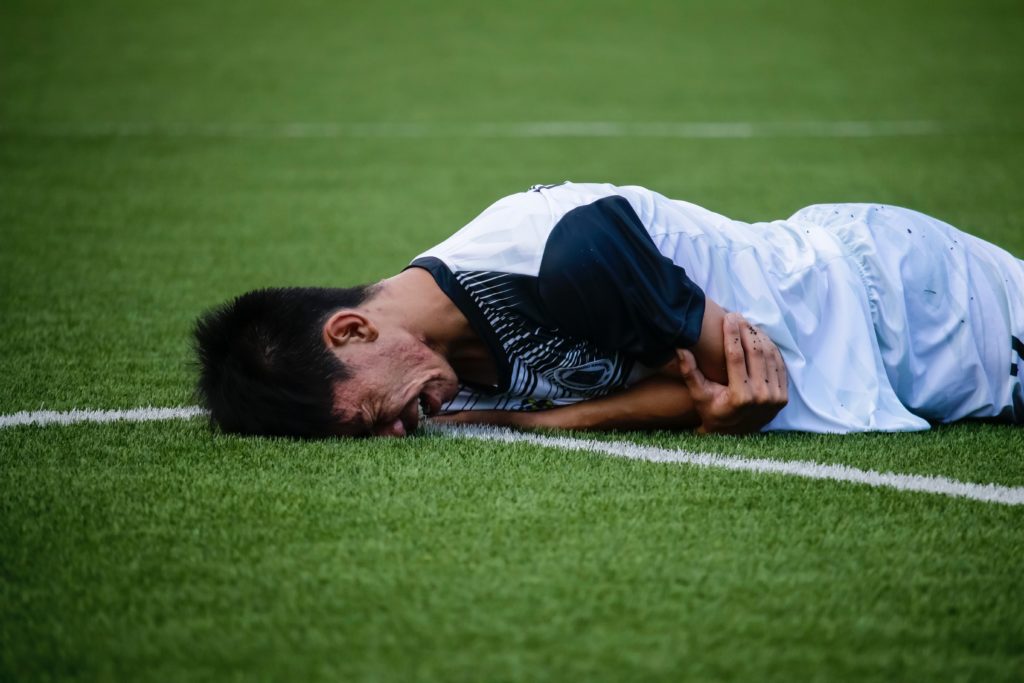Top 10 Tips To Avoid Injuries In Sports

Sports injuries aren’t fully preventable, but many can be avoided. Here are 10 tips to avoiding sports related injuries.
Playing sports is one of the best ways to exercise and doesn’t need to stop once you graduate High School. With club teams and various sports organizations, people at all age levels can enjoy their favorite sports year round. But when we stay active, we increase the risk of injury.
While some injuries are inevitable there are a few preventative tips that can reduce an athlete getting sidelined.
Follow these ten tips for preventing sports injuries this spring:
- Include a proper warm up. A warm up will prepare your body by raising the heart rate, warming the muscles and connective tissue, improving your mobility and improving the functionality of all the body’s movement. Players be far less likely to suffer a muscle or tendon strain because muscles will be loose, warm, pliable and ready for hard work.
- Start off slow. As players return from a much-deserved rest always start them off slow and gradually increase the intensity. Have players begin in strength and conditioning geared towards their spring sports. Starting off slow and incorporating moments of rest helps reduce the risk of overuse injuries.
- Practice proper technique. Coaches should be able to advise and provide expert guidance so that players learn the correct training protocols at the outset. Time spent at this stage will reap long-term rewards in the form of improved performance and no training downtime due to injuries.
- Have proper equipment. From helmets to mouth guards or shoes or make sure players have the proper equipment for their sports. Check all the gear for proper fit and any wear and tear. Replace any equipment that doesn’t not fit properly or has been over used as it may increase a player’s risk of injury.
- Follow the rules. The rules are designed, in part, to keep things safe. This is extremely important for anyone who participates in a contact sport. You need to learn them and to play by the rules of conduct. Respect the rules on illegal procedures and insist on enforcement by referees, umpires and judges.
- Stay hydrated. Drinking water helps transport nutrients to give you energy and keep you healthy. If you’re not properly hydrated, your body can’t perform at its highest level. You may experience fatigue, muscle cramps, dizziness, or more serious symptoms. To avoid injuries due to dehydration drink plenty of water.
- Get plenty of sleep. The most undervalued component of a training program, rest is essential to allow a player’s body to recover. Rest helps repair microscopic damage to the muscles and associated tissues that occur during exercise. If players neglect rest it will result in a weakened body that is more susceptible to injury or illnes.
- Eat nutritious meals. It’s important for athletes to eat a well-balanced diet full of fruits, vegetables and lean proteins, and to maintain a regular eating schedule. Lack of proper nutrition will cause fatigue and will include inadequate energy intake, glycogen depletion and poor iron status.
- Listen to your body. If players are tired, feeling ill or something is hurting, encourage them to pay attention to their bodies to prevent a more serious problem from developing.
- Seek medical attention. If players experience early signs of an injury have them seek medical care early to help avoid injuries from becoming more serious.
Put these 10 tips to preventing injuries together and you have a winning combination to enjoying the sports you love to play.
About Athlete Intelligence
Athlete Intelligence is a leading head impact monitoring and performance tracking solution for team sports. Through wearable devices, Coaching and Athletic Training staff take a data driven approach to improving athlete safety and performance.
To learn more about Athlete Intelligence: